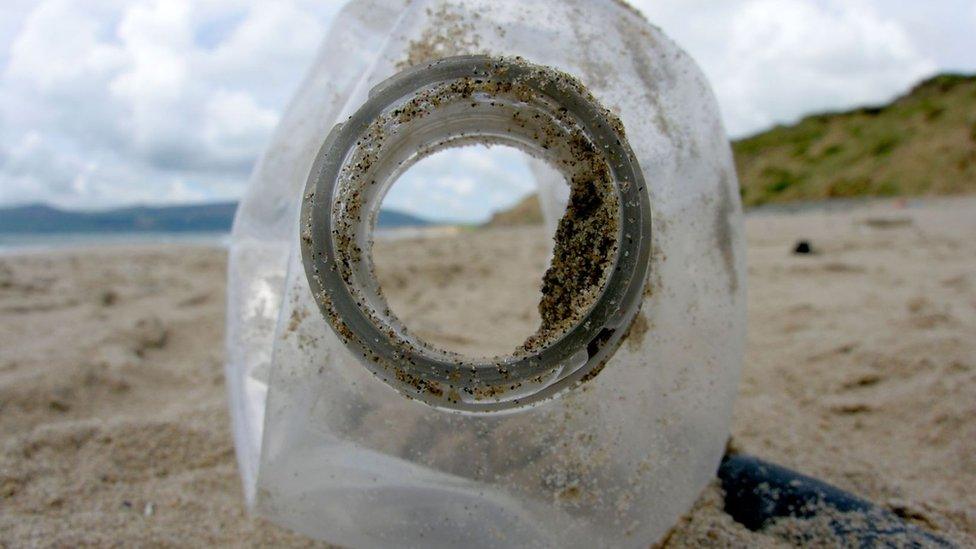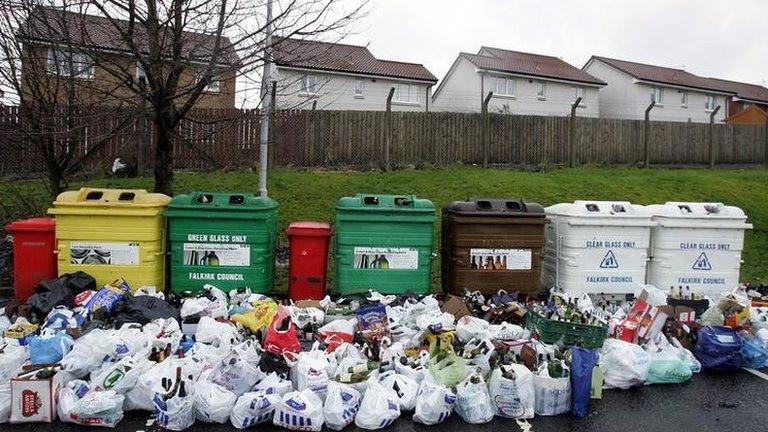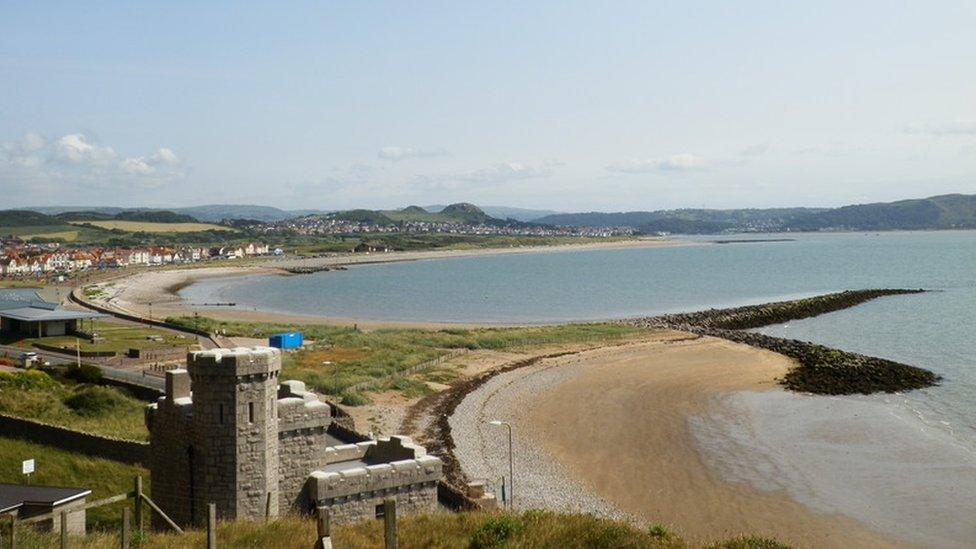Beach litter rise sparks bottle deposit system call
- Published

The amount of litter on Welsh beaches has risen prompting calls for a deposit scheme to be introduced on bottles, cans and cartons.
The Marine Conservation Society said plastic was a major feature as 16% more litter was picked up than in 2015.
It wants people to pay up to 10p extra when they buy a drink and they will get it back when they return the bottle.
It also wants takeaway containers to be compostable but opponents said the plans would not work.
"With a deposit return scheme, you pay a deposit on a bottle - equivalent to 5p or 10p - and you get it back when you return to a reverse vending machine in a shop," said Gill Bell, Wales conservation manager for the Marine Conservation Society (MCS).
"It's up to you to return the bottle so you would get your deposit back."
"A deposit return scheme [DRS] would work in Wales and we would like the Welsh Government to look at it."
Ms Bell highlighted the success of the 5p levy on plastic carrier bags and said DRS has been successful in other countries such as Germany along with parts of United States and Australia.
'A tax in effect'
Scotland is examining whether to introduce DRS.
However, Jane Bickerstaffe, director of the the Industry Council for Research on Packaging and the Environment is against the move.
She said: "A deposit is a tax in effect.
"You'd have to have a system in place in shops which costs money to run and repair, leaving unintended consequences for the consumer.
"They are financially expensive ways to address just a small part of the problem."
The Welsh Government has been asked to comment.
Other measures MCS wants to see is takeaway containers to be compostable and people to choose more carefully what they are buying in shops when it comes to packaging.
Ms Bell added: "It's about empowering people to do their little bit at home. They can reduce the amount of plastic and packaging they buy."
But Ms Bickerstaffe has a different approach.
"Sometimes the criticism is litter because a few people can't be bothered to put the packaging in a bin so it ends up in the street," she added.
"Litter is a growing problem and one that all of us need to tackle. That's why INCPEN is supporting a new approach called Neat Streets.
"It aims to make everyone proud of their environment so they don't litter anything - till receipts, cups, crisp bags, fishing nets, newspapers, gum, cigarette ends or anything else.
"Unless a place is properly cleaned, it just gets dirty again because even one piece of litter makes people think it's OK to add more."
- Published14 May 2015

- Published20 November 2016
